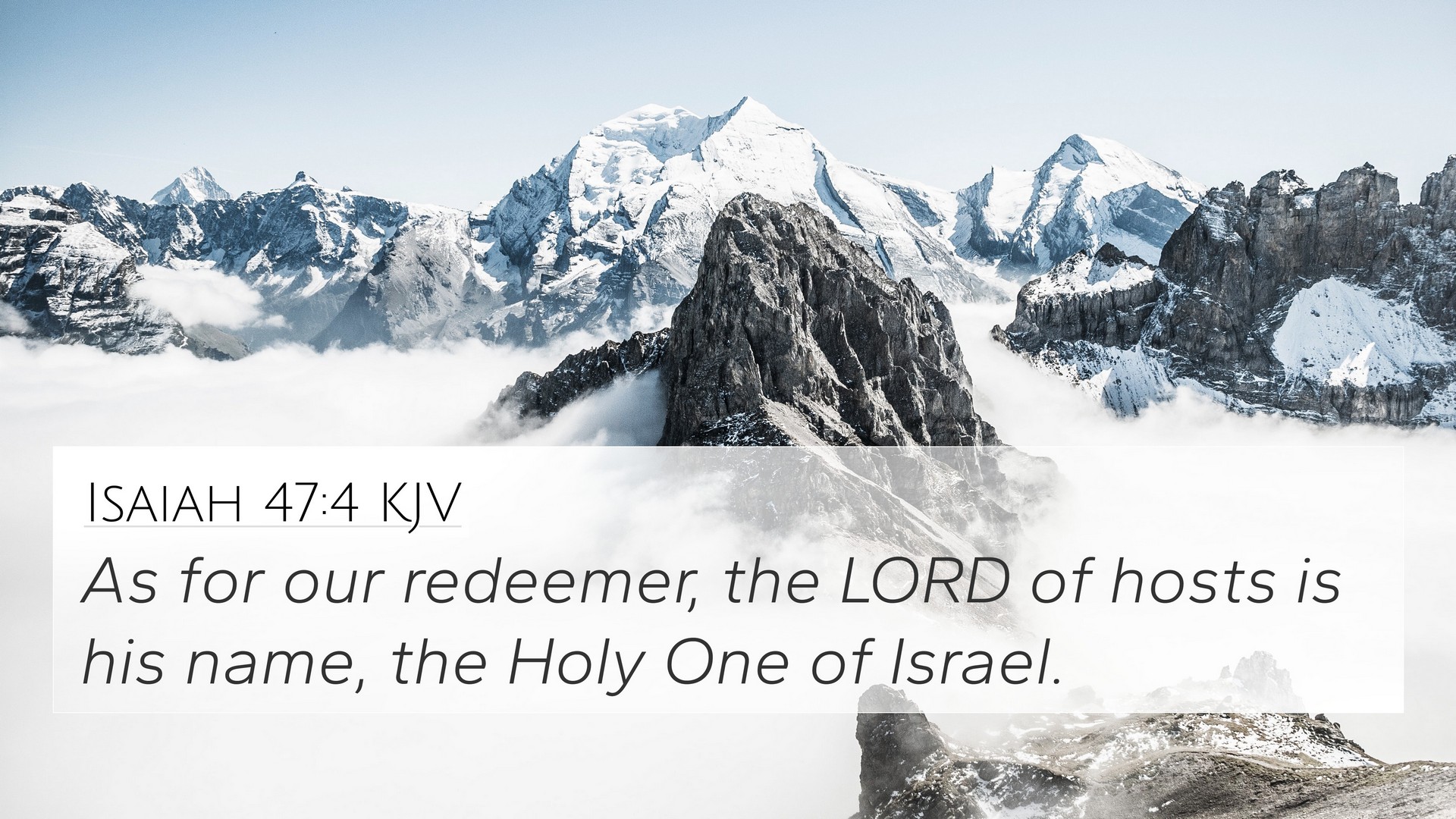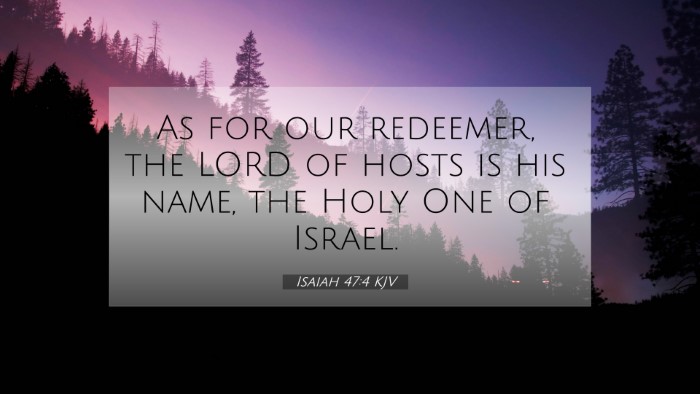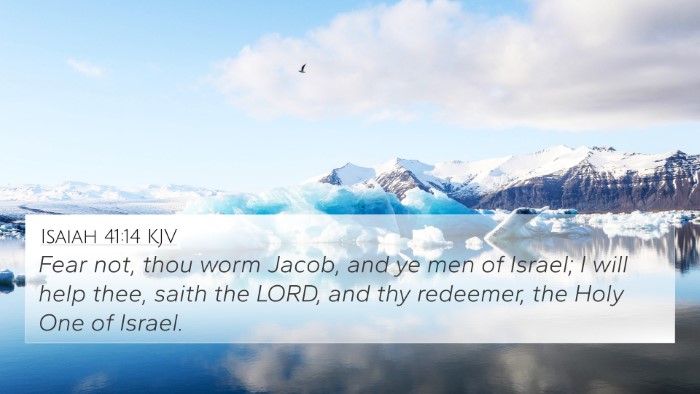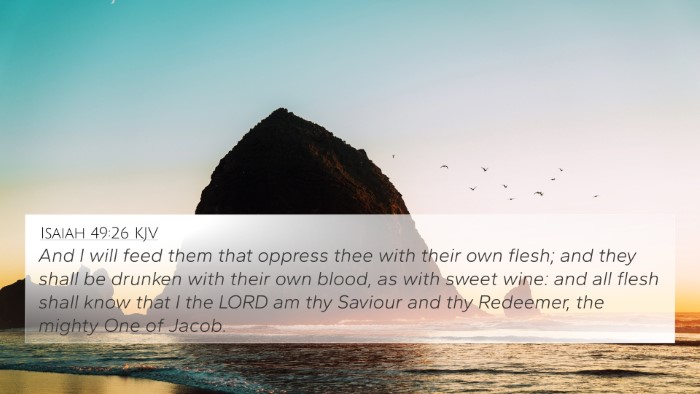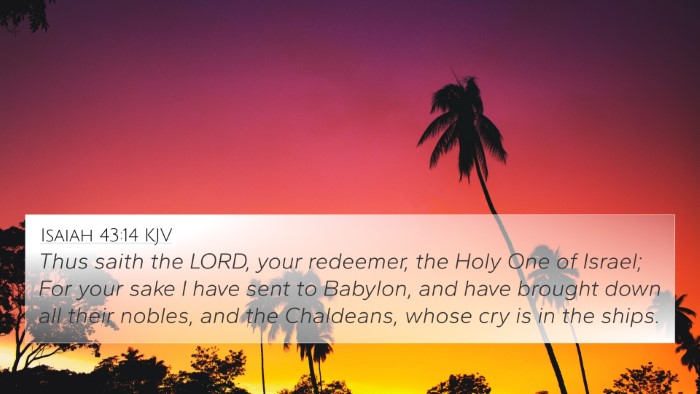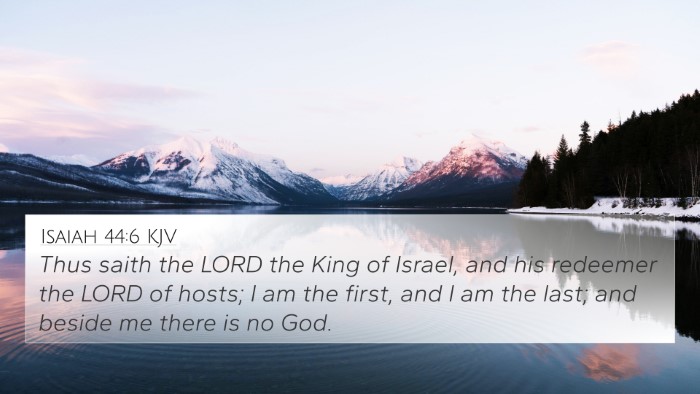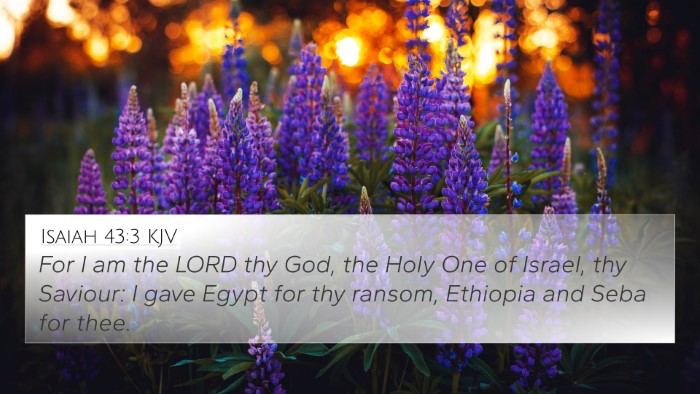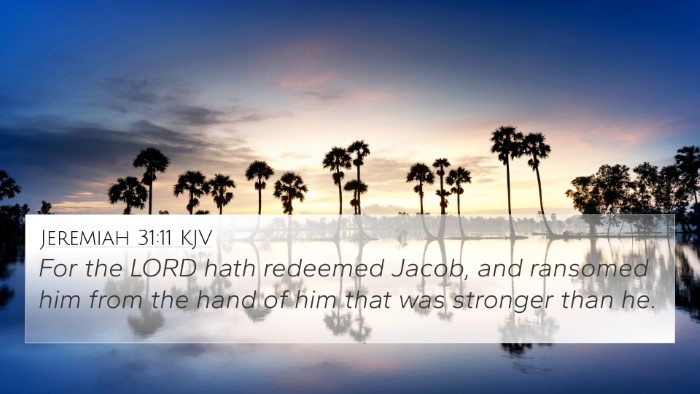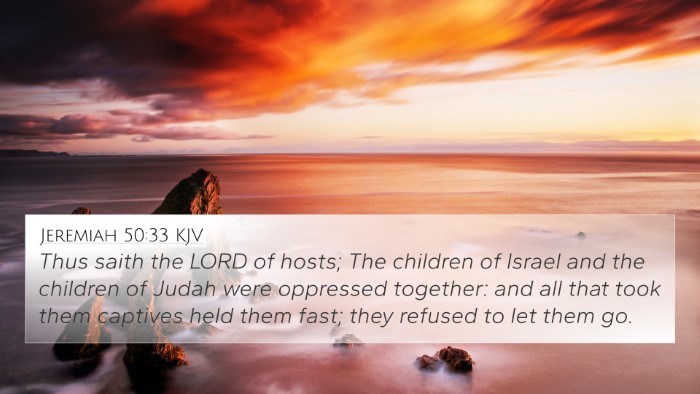Isaiah 47:4 - Summary and Interpretation
Isaiah 47:4 states: "As for our Redeemer, the LORD of hosts is his name, the Holy One of Israel." This verse serves as a proclamation of God's sovereignty and redemptive power, affirming His identity as the ultimate Redeemer for His people. Let us explore the meaning of this verse in depth, drawing insights from various public domain commentaries.
Contextual Significance
This verse appears in a section where God addresses Babylon, emphasizing their inevitable fall due to their pride and oppression of His people. The reference to "our Redeemer" highlights the theme of deliverance and salvation that runs throughout the book of Isaiah.
- Matthew Henry's Commentary:
Matthew Henry emphasizes that God's role as Redeemer assures His covenant people of protection and restoration. The title "LORD of hosts" conveys His authority over all creation, while "the Holy One of Israel" underscores His purity and faithfulness to His promises.
- Albert Barnes' Notes:
Barnes notes that calling God the Redeemer affirms the idea that He saves His people not just from physical oppression but also from spiritual bondage. This deliverance reflects His character as a holy and just God who upholds His covenant with Israel.
- Adam Clarke's Commentary:
Clarke explains that the title "Holy One" stresses God's separateness from sin and His commitment to righteousness. He points out that God's redemptive action is anchored in His holy nature, which seeks to restore relationship with His created beings.
Thematic Connections to Other Bible Verses
Isaiah 47:4 has multiple connections to other Bible verses that echo its themes of redemption, divine sovereignty, and holiness. Here are 7-10 key cross-references:
- Isaiah 43:1: "But now, thus says the LORD, he who created you, O Jacob, he who formed you, O Israel: 'Fear not, for I have redeemed you; I have called you by name, you are mine.'"
- Isaiah 48:17: "Thus says the LORD, your Redeemer, the Holy One of Israel: 'I am the LORD your God, who teaches you to profit, who leads you in the way you should go.'"
- Jeremiah 50:34: "Their Redeemer is strong; the LORD of hosts is his name; he will surely plead their cause, that he may give rest to the earth, but unrest to the inhabitants of Babylon."
- Romans 3:24: "And are justified freely by his grace through the redemption that came by Christ Jesus."
- Ephesians 1:7: "In him we have redemption through his blood, the forgiveness of sins, in accordance with the riches of God's grace."
- 1 Peter 1:18-19: "For you know that it was not with perishable things such as silver or gold that you were redeemed... but with the precious blood of Christ, a lamb without blemish or defect."
- Hebrews 9:12: "He entered once for all into the holy places, not by means of the blood of goats and calves, but by means of his own blood, thus securing an eternal redemption."
Relational Insights and Connections
The relationships between these verses help us explore how the concept of redemption unfolds throughout Scripture. Comparing them reveals the continuity of God’s redemptive plan from the Old Testament through to the New Testament, emphasizing consistent themes of deliverance, holiness, and God’s unwavering commitment to His people.
Application and Reflection
When reflecting on Isaiah 47:4, believers are encouraged to remember their identity as God's redeemed people. Understanding that God is both holy and just, yet intimately concerned for our well-being, fosters trust and reliance on His promises. This can be key in personal faith journeys, especially in times of affliction or uncertainty.
Utilizing various tools for Bible cross-referencing can enhance the study of this verse and its connections. A bible concordance or a cross-reference Bible study guide aids in exploring how different scriptures interact with each other, offering rich insights into God's overarching narrative.
Conclusion
Isaiah 47:4 serves as a powerful reminder of God’s character as our Redeemer. By engaging in cross-referencing biblical texts, one can enrich their understanding of this verse and recognize the profound connections across the Bible that reveal God's redemptive nature. This holistic view enhances our appreciation for Scripture as a unified message of hope, grace, and divine intervention in human history.
